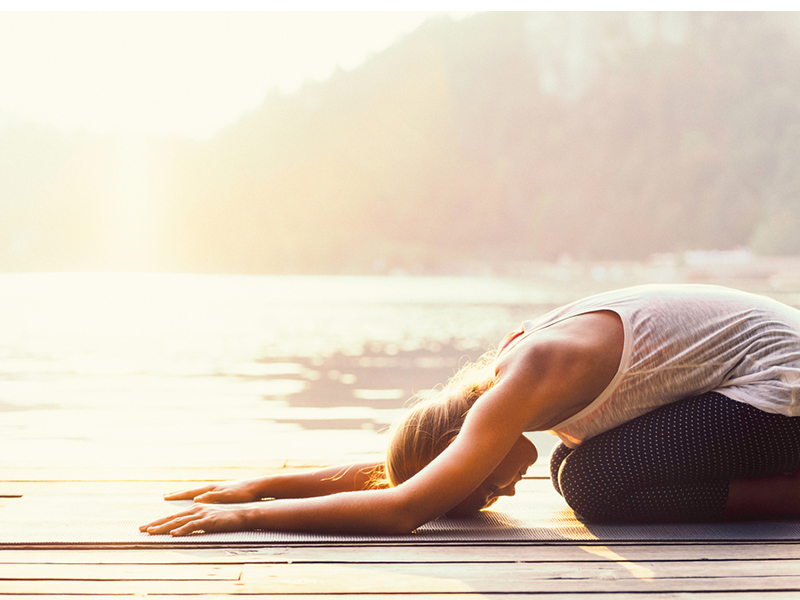Keeping our minds and bodies well can help to prevent us from burning out or falling sick easily. Read on for some wellness tips on how to stay mentally, emotionally and physically healthy.
#1 Get enough sleep
A good night’s rest isn’t only about the number of hours we snooze, but also about the quality of our sleep. Having poor sleep can impair a whole lot of functions in our body (The National Sleep Foundation): concentration and focus, reaction time, creativity and problem-solving abilities – even our memory. When we have insufficient sleep, our immune system is weakened as our body produces and releases fewer cytokines, a protein which helps to fight infections and inflammation. Fewer infection-fighting antibodies and cells are also produced.
Besides affecting our emotions, when we’re sleep deprived, we’re more likely to get sick. We also take a longer time to recover. Lack of sleep has also been worryingly related to the development of chronic conditions such as type 2 diabetes and cardiovascular disease (CDC).

So, how much is enough sleep? Check out the Sleep Health Foundation’s list of recommended hours of sleep for people of different ages. Take note that those are guidelines and the ideal number of sleep hours depends on various factors such as a person’s health and lifestyle, including what they do during the day.
How to get better sleep
- Ensure that your bedroom is set for rest and a comfortable night. Choose a proper mattress (memory foam might be helpful for some, and natural latex for better air circulation), pillows (good neck support and adequate firmness) and sheets (breathable fabrics).
- Especially if you’re working from home, keep your workspace out of your bedroom if you can. This will enable you to wind down for the day and avoid associating the space with work.
- Cut down on screen-time before bed so your brain can get ready to rest. Looking at your devices can cause your brain to become stimulated again and make it harder to fall asleep. The blue light from devices also disrupts your circadian rhythm, affecting your sleep cycle.
#2 Stay active
Exercising can do wonders for our health and wellness. According to Harvard Health Publishing, as little as 30 minutes of physical activity can help reduce your risk of developing serious diseases and health conditions. When we work out, there are many physical benefits – strengthening and protecting our bones, improving our balance (helping to avoid falls), stretching and strengthening our muscles, just to name a few. There are also psychological benefits of exercise, including improved self-esteem and mood, and reduced stress.
For adults, CDC recommends 150 minutes of weekly aerobic activity – cardio workouts such as brisk walking, swimming, running or cycling.

#3 Eat healthily
Having a healthy diet is not about counting carbs or going on stringent diets. It’s about looking at the quality of the food you consume. WHO offers some recommendations, including having a variety of items from different food groups and reducing your intake of salt. Studies have also shown that what you eat can affect your emotional and mental wellbeing. For example, not having enough vitamins and minerals in your food can lead to a lack of energy and a bad mood (Mental Health First Aid USA).
#4 Practise mindfulness and meditation
Given the amount of stress and anxiety we experience in everyday lives, disconnecting and slowing down can be beneficial for us. There’s loads you can do, from practicing mindfulness to yoga meditation. According to the Mayo Clinic, meditation offers a host of emotional and physical health benefits, including the management of anxiety.
There are also related wellness activities such as crystal healing and sound baths. Crystal healing is said to help to improve emotional and cognitive functions, and psychological health, while sound baths are meditation sessions that use frequencies to restore balance and wellness in the body. Both have been around for thousands of years; sound baths are said to date back to ancient Greece, where they was reportedly used to cure mental disorders.
#5 Plan a wellness retreat to refresh and recharge
Fancy a wellness getaway later in the year? During the trip, you’ll be able to get away from work and just relax. Choose to go as a group or do it solo! Here are some cool ones around the region to check out (once travel bans are lifted):
- The Yoga Barn, Ubud, Bali, Indonesia
- Kamalaya, Koh Samui, Thailand
- Amatara Wellness Resort, Phuket, Thailand
- Pangkor Laut Resort, Perak, Malaysia
- Thanyapura Health & Sports Resort, Phuket, Thailand
- SEN Wellness Sanctuary, Tangalle, Sri Lanka
- REVĪVŌ Wellness Resort, Nusa Dua, Bali, Indonesia
- Vana Retreat, India

An emphasis on wellness has also entered the workplace. In 2019, the Global Wellness Summit (GWS) trademarked the term “wellness sabbatical”. Unlike a traditional sabbatical, a wellness sabbatical enables an individual to benefit from a long-term wellness programme while keeping up with work (if desired). It’s been reported that 25% of Fortune’s 100 Best Companies to Work For are now offering this option to their employees.
Health insurance from Pacific Prime
Pacific Prime Singapore is an insurance brokerage that specialises in putting together health insurance plans for individuals, families, and groups. They offer advice to help you pick the right insurance for your needs and budget. Contact them now.
Written in collaboration with:
Pacific Prime Singapore
18 Cross Street, China Square Central, #14-05
6346 3781 | pacificprime.sg
Read on for more about insurance and other health and fitness topics in Singapore:
Top six health issues in Singapore
Dengue fever in Singapore: All you need to know
Don't miss out on the latest events, news and
competitions by signing up to our newsletter!
By signing up, you'll receive our weekly newsletter and offers which you can update or unsubscribe to anytime.
